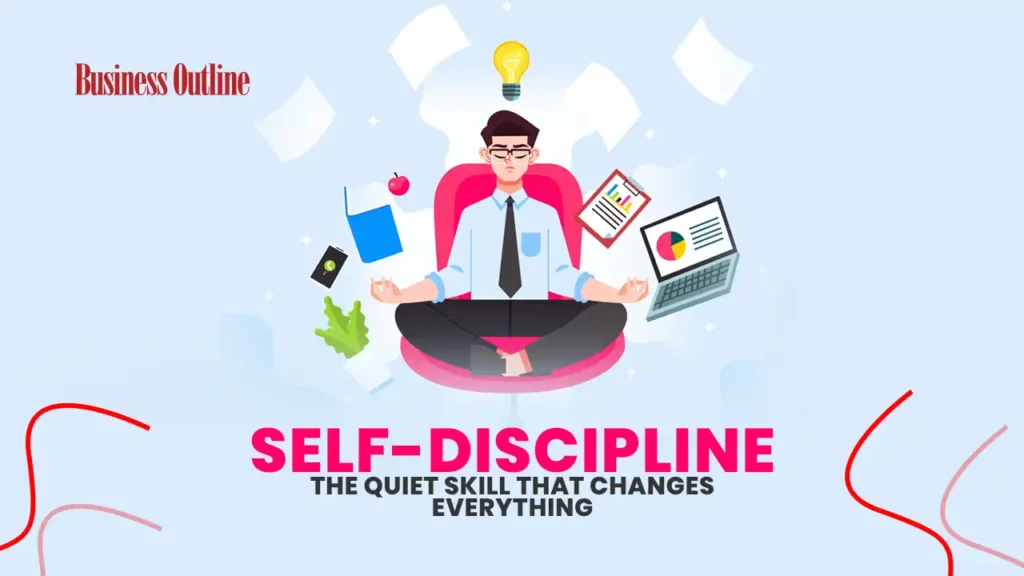Self-discipline rarely announces itself. It shows up in a silent alarm at 6 a.m., in an unfinished project reopened after dinner, in the decision to read one more page instead of scrolling. Though culture often celebrates sudden bursts of motivation, those sparks fade quickly; discipline stays. When a marketer schedules posts, a writer cuts a paragraph, or a gamer logs off big baller monopoly to tackle a workout, each action signals the same habit: choosing long-term gain over short-term ease.
Self-Discipline: The Quiet Skill That Changes Everything
Why It Matters in Daily Life
Life delivers endless distractions — messages, ads, snack aisles, second seasons. Without an inner guide, attention scatters. Self-discipline acts like mental scaffolding: it keeps priorities visible and holds boundaries together when temptations press in. Over time this quiet consistency shapes careers, health, and even relationships. People trust disciplined colleagues, admire friends who keep promises, and count on partners who follow through. The trait becomes a reputation before anyone notices.
Core Benefits of Practicing Self-Discipline
- Reliable progress – small steps compound into big milestones.
- Lower stress – plans replace last-minute scrambles.
- Greater confidence – each completed task proves capability.
- Stronger focus – fewer impulses steal mental energy.
- Resilience – setbacks hurt less when habits hold steady.
These rewards arrive slowly, but they stay long after brief motivation fades.
Where Discipline Comes From
No one is born disciplined. Early routines — bedtimes, chores, school deadlines — plant the first seeds. Later, mentors and role models show how consistency pays off. Yet adults must rebuild the habit on purpose. The process begins with clarity: knowing what truly matters and why. Vague goals rarely inspire steady action; clear values do.
Building Blocks That Keep Habits Alive
- Specific triggers – link a task to a cue (gym shoes by the door).
- Tiny starts – write fifty words, not five pages.
- Visible tracking – checkmarks, calendars, simple charts.
- Realistic buffers – expect delays; plan extra time.
- Kind review – weekly reflections, not harsh judgments.
These tools remove friction, making good choices slightly easier than giving up.
Common Obstacles and Honest Fixes
Perfectionism stalls many disciplined plans. Waiting for the “right mood” or flawless outline turns routines into mirages. Another hurdle: hidden fatigue. Sleep debt mimics laziness; fixing rest often revives discipline. Environment matters too — junk food on the desk will win eventually. Adjust surroundings before blaming willpower.
Signs Discipline Is Slipping
- Frequent “just this once” exceptions
- Goals rewritten more than acted upon
- Tasks expanding to fill every spare hour
- Harsh self-talk after small mistakes
- Endless tweaking instead of finishing
Spotting these patterns early prevents long detours.
Discipline vs. Rigidity
Structure should serve life, not trap it. Strict schedules that ignore rest, curiosity, or relationships eventually crack. True discipline includes flexibility; it bends without breaking. When emergencies hit, disciplined people pause, adapt, then restart — because the habit lives underneath the calendar.
Role Models in Plain Sight
Elite athletes showcase discipline on highlight reels, but countless examples hide in ordinary settings: a nurse studying after night shifts, an immigrant saving every spare dollar, a grandparent walking daily despite sore knees. Their stories prove that consistency is not personality — it’s practice.
Everyday Practices Worth Borrowing
- Morning prioritization – decide the day’s top task before other voices enter.
- Single-task blocks – twenty-minute sprints with notifications silenced.
- Micro-rewards – stretch, tea, or fresh air after a focused stint.
- Clear endings – shut laptops, tidy desks, mark “done” so rest feels earned.
- Monthly reset – review goals, drop stale ones, celebrate quiet wins.
Borrow one practice at a time; layer them slowly to avoid overload.
When Discipline Feels Hard
Some seasons bring heavier burdens — illness, grief, economic strain. During these times, discipline shrinks to essentials: sleep, nutrition, one non-negotiable task. Lowering the bar isn’t failure; it’s strategy. Protect the core habit, and expansion can wait until strength returns.
Final Reflection
Self-discipline is rarely dramatic. It looks like ordinary choices repeated until they form a sturdy path. Those choices may feel small — a glass of water instead of soda, five minutes of language practice, the courage to close entertainment and open work. Yet stacked together, they build momentum that luck alone cannot match. In a culture chasing hacks and shortcuts, discipline offers something quieter and more reliable: the steady satisfaction of doing what matters, even when no one else is watching.
Read more: Top Business Magazine


